What Are Credit Card Companies?
Credit card companies are financial institutions and organizations that manage credit card transactions for both individuals and businesses. These include banks, credit unions, payment networks, and other institutions that provide credit and facilitate card payments.
The Largest Credit Card Issuers in 2025
Credit card issuers are responsible for managing your accounts, from processing your application and issuing your card to sending statements and handling payments. They also administer rewards programs, provide benefits, and report your payment history to credit bureaus.
While all credit card companies serve a similar function, they don’t all offer the same experience or value. Larger credit card issuers often provide a broader range of products compared to smaller banks or credit unions. Understanding which companies handle the most purchase volume can guide you in selecting the right card for your needs.
The U.S. credit card market is a significant component of the nation’s financial landscape. As
of 2023, approximately 82% of American adults possess at least one credit card. Credit card
adoption varies across demographics.
Credit Card Usage Across US
97% of households earning over $100,000 have credit cards, with these households relying on credit cards for 89% of their payments.
Adults aged 25-54 use credit cards for 35% of their transactions. Additionally, 53% of individuals aged 30-44 have carried credit card debt at least once in the past year.
56% of households with incomes below $25,000 carry credit card debt.
Purposes Credit Cards Serve
Credit cards offer a seamless method for conducting transactions, eliminating the need to carry cash and providing convenience for both in-person and online purchases.
Instrumental in building credit history, as responsible usage and timely payments contribute positively to one’s credit score, which is crucial for securing loans and favorable interest
rates.
Credit cards often come with rewards programs, fraud protection, and purchase security, making them a go-to tool for consumers.
9 Popular Credit Card Companies in USA
For those interested in exploring options, here’s a list of credit card companies to consider:
| S. No. | Credit Card Companies in USA |
|---|---|
| 1. | American Express (Amex) – Luxury Travel & Rewards |
| 2. | Chase – Leading Travel and Cashback Cards |
| 3. | Citibank – Versatile Rewards and 0% APR Offers |
| 4. | Bank of America – Banking Perks & Preferred Rewards |
| 5. | Wells Fargo – Simple and Transparent Cashback |
| 6. | Capital One – Digital-First Credit Card Provider |
| 7. | Barclays US – Co-Branded Airline & Travel Cards |
| 8. | Synchrony Financial – Store-Branded & Retail Cards |
| 9. | U.S. Bank – Flexible Rewards & Balance Transfers |
Based on the latest data from The Nilson Report, here are the largest U.S. credit card issuers ranked by purchase volume for the first half of 2025.
| Credit Card Companies | Credit Card Purchase Volume |
|---|---|
| Chase | $645.2 Billion |
| American Express | $589.7 Billion |
| Citi | $310.8 Billion |
| Capital One | $292.4 Billion |
| Bank of America | $262.3 Billion |
| Barclays US | $79.54 Billion |
| U.S. Bank | $106.7 Billion |
| Wells Fargo | $97.4 Billion |
| Synchrony Financial | $185 Billion |
Credit Cards: Issuer vs. Network
It is important to understand that credit card issuers and credit card networks are two different entities that have crucial roles in the credit card economy.
Here’s a clear comparison:
| Basis | Credit Card Issuer | Credit Card Network |
| Definition | A firm in the financial sector that offers credit cards to the customers it serves, though they can be a bank or credit union. | A firm that is involved in the management of clearing and settlement of electronic payment by helping merchants to link up with issuers. |
| Role | Adds extra credit to the amount that the cardholder is allowed to spend on the credit card.Covers payment, such as invoices, rates of interest, and fees among other features like a reward program.It is used to set the credit limit, to approve or reject the application, and to attend to customer complaints. | Carries out transactions between the merchant and the issuer of the card held by the cardholder. Establishes the conditions governing the use of a card for instance, where the card is honored. It has no cards or credit, and its role is to only process the payments. |
| Example | ChaseCitiBank of AmericaCapital One | Visa Master card American Express (This company also acts as an issuer) Find (This company also acts as an issuer) |
| Key Functionalities | In the case of a credit card, the issuer is the one who provides cash and also the one to recover it, i.e., the financial role. | Transaction information, particularly payment details and approval, is facilitated through the network. |
In other words, while the issuer offers credit, the network guarantees the payments can be made securely and efficiently. Some credit card companies, such as the American Express and Discover companies, perform the roles of the issuer and the network.
Best 9 Credit Card Companies in USA
The USA is home to many large credit companies, which offer some of the best credit cards, from basic cards for everyday purchases to premium cards loaded with rewards and perks. Although they don’t all offer the same experience or value, card companies generally operate in the same way.
To make the most of any card in your wallet, you need to be fully aware of all of its features, including any potential bonuses from using cards from different networks or issuers.
Here are the list of top credit companies in the USA:
1. Chase
- CEO: Jamie Dimon
- Revenue: US $110.3 billion (2025)
- Headquarters: 270 Park Avenue, New York City, New York, USA
- Employees: 296,000
- Founded: September 1, 1799
- Social media: Twitter, Linkedin
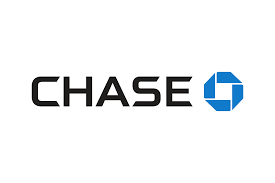
Chase is one of the largest credit card issuers in the U.S., offering some of the most popular credit cards like Chase Sapphire Preferred®, a leading travel rewards card, and Chase Freedom Unlimited®, a top-tier cashback card. It serves a broad audience, including travelers, small business owners, and everyday spenders.
Chase credit cards are known for strong travel rewards, cashback offers, fraud protection, and excellent customer service. The bank has over 93 million credit card customers and is the largest issuer of Visa credit cards in the U.S.
Chase is headquartered in New York City and has over 140 million credit cards in circulation. It processed $1.3 trillion in purchase transactions in 2023. Chase has major partnerships with United Airlines (United Mileage-plus Cards), Southwest Airlines, Amazon (Amazon Prime Rewards Visa), and Marriott Bonvoy.
2. American Express
- CEO: Stephen J. Squeri
- Revenue: US $59.24 billion (2025)
- Headquarters: 200 Vesey Street, Brookfield Place in New York City, New York, USA
- Employees: 77,300
- Founded: March 18, 1850
- Social media: Twitter, Linkedin
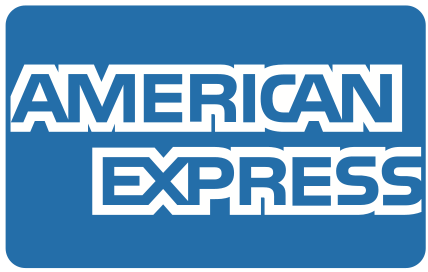
American Express is known for its premium travel and rewards credit cards. Some of its most popular offerings include The Platinum Card® for luxury travel perks, Blue Cash Preferred® for cashback on groceries, and Business Gold Card for entrepreneurs. Amex primarily caters to high-net-worth individuals, frequent travelers, and business owners.
Amex provides airport lounge access, concierge services, high reward rates, and superior fraud protection. It serves over 55 million cardholders in the U.S., emphasizing premium experiences. Unlike most banks, Amex issues its own cards, maintaining full control over underwriting and benefits.
Headquartered in New York City, Amex has 121 million cards in circulation worldwide and processed $1.5 trillion in transactions in 2023. It has strong partnerships with Delta Airlines (Delta SkyMiles Cards), Hilton Hotels (Hilton Honors Cards), and Marriott Bonvoy for co-branded travel rewards.
3. Citi
- CEO: Jane Fraser
- Revenue: US $156.8 billion (2023)
- Headquarters: 388 Greenwich Street, New York, NY, USA
- Employees: 240,000
- Founded: June 16, 1812
- Social media: Twitter, Linkedin
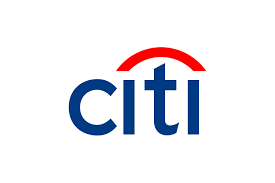
Citibank offers a wide range of credit cards, from cashback options like Citi Double Cash® to travel-focused cards like Citi Premier® and AAdvantage® Platinum Select. Citi serves students, travelers, and cashback enthusiasts with competitive rewards and benefits.
Citi is known for long 0% intro APR offers, flexible rewards, and strong fraud protection. It has over 68 million credit card customers in the U.S. and processes billions in transactions annually. Citi cards often feature purchase protection and extended warranties, making them a popular choice.
Headquartered in New York City, Citibank has over 100 million credit cards issued globally, with a strong presence in the U.S. It has co-branded partnerships with American Airlines (Advantage Cards), Costco (Citi Costco Anywhere Visa), and Expedia (Expedia Rewards Card).
4. Capital One
- CEO: Richard D. Fairbank
- Revenue: US $49.5 billion (2023)
- Headquarters: 1680 Capital One Drive McLean, Virginia, USA
- Employees: 54,000
- Founded: July 21, 1994
- Social media: Twitter, Linkedin
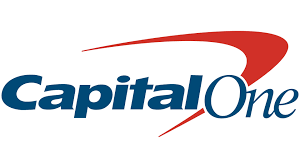
Capital One is a digital-first credit card provider with flagship cards like Venture Rewards, Quicksilver Cash Rewards, and SavorOne Rewards. It serves students, small businesses, and frequent travelers, offering straightforward cashback and travel rewards.
Known for no foreign transaction fees, instant card approvals, and fraud protection, Capital One has over 100 million customers in the U.S. The company prioritizes AI-driven fraud monitoring and digital banking integration.
Headquartered in McLean, Virginia, Capital One has over 75 million credit cards in circulation and processed $600 billion in transactions in 2023. It has partnerships with Walmart (Walmart Rewards), GM (GM BuyPower Card), and Hotels.com.
5. Bank of America
- CEO: Brian Moynihan
- Revenue: US $25.3 billion (2023)
- Headquarters: 100 North Tryon Street, Charlotte, North Carolina, USA
- Employees: 217,000
- Founded: October 17, 1904
- Social media: Twitter, Linkedin
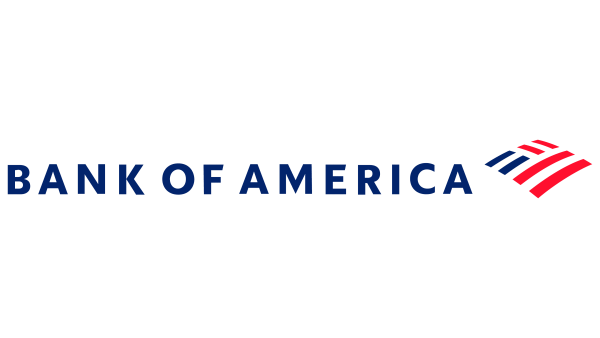
Bank of America offers credit cards like the Bank of America® Customized Cash Rewards, Alaska Airlines Visa Signature®, and Premium Rewards®. These serve frequent travelers, cashback seekers, and high-net-worth clients who benefit from their Preferred Rewards program.
Bank of America is known for high cashback rates, extensive fraud protection, and banking perks for existing customers. It has over 60 million credit cardholders and integrates its cards with robust mobile banking services.
Headquartered in Charlotte, North Carolina, Bank of America has over 58 million credit cards in circulation and processed $900 billion in transactions in 2023. It partners with Alaska Airlines, the MLB (Major League Baseball Rewards Cards), and Susan G. Komen (charity-linked credit cards).
6. Barclays US
- CEO: Denny Nealon
- Revenue: US $31.57 billion (2023)
- Headquarters: 125 South West Street Wilmington, DE 19801
- Employees: 12,323
- Founded: November 17, 1690
- Social media: Twitter, Linkedin
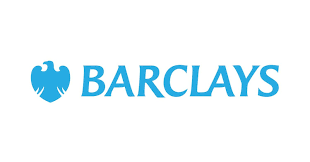
Barclays is a UK-based bank with a strong presence in the U.S. credit card market, issuing co-branded credit cards with major brands. Popular cards include the JetBlue Plus Card, Advantage Aviator Red World Elite Mastercard, and the Barclaycard Arrival Plus®, serving travelers, airline loyalty members, and everyday spenders.
Barclays credit cards offer travel perks, cashback rewards, and exclusive airline benefits. It has millions of cardholders in the U.S., focusing primarily on partnered credit cards rather than general banking customers. Barclays is among the top 10 credit card issuers in the U.S. by transaction volume.
Headquartered in Wilmington, Delaware, Barclays has over 24 million credit cards in circulation in the U.S.. It has partnerships with JetBlue, American Airlines, Wyndham Hotels, the NFL, and Uber for co-branded credit cards.
Discover
7. US Bank
- CEO: Andrew Cecere
- Revenue: US $6.9 billion (2025)
- Headquarters: 800 Nicollet Mall Minneapolis, MN 55402, US
- Employees: 70,000
- Founded: July 13, 1863
- Social media: Twitter, Linkedin
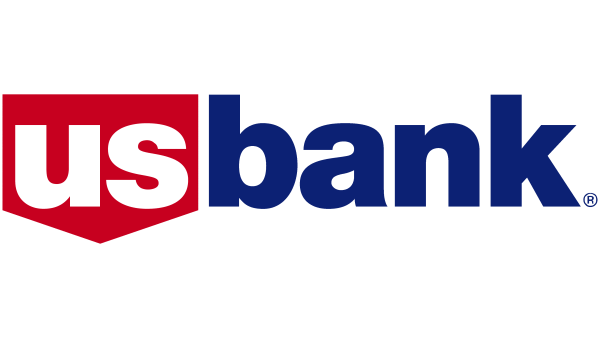
U.S. Bank offers a variety of credit cards, including the U.S. Bank Altitude Reserve Visa Infinite®, U.S. Bank Cash+® Visa Signature®, and U.S. Bank Platinum Visa®. These cards cater to travelers, cashback seekers, and balance transfer users.
U.S. Bank is known for flexible rewards programs, competitive balance transfer offers, and strong security features. It serves millions of credit cardholders in the U.S., ranking among the top 10 credit card issuers in the country.
Headquartered in Minneapolis, Minnesota, U.S. Bank has more than 30 million credit cards in circulation. It has partnerships with REI, Kroger, and Harley-Davidson for co-branded credit cards.
US Bank
8. Wells Fargo
- CEO: Mr. Charles W. Scharf
- Revenue: US $78.492 billion (2023)
- Headquarters: 420 Montgomery Street, San Francisco, California 94104, USA
- Employees: 250,000
- Founded: 18 March, 1852
- Social media: Twitter, Linkedin
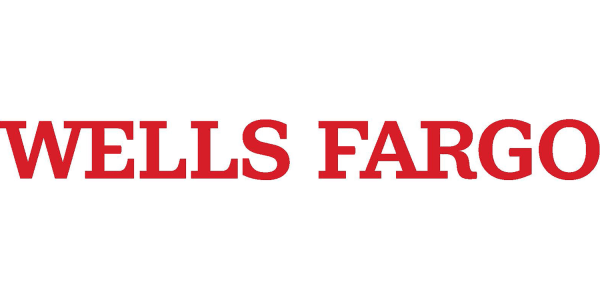
Wells Fargo provides credit cards like Active Cash® for unlimited 2% cashback and the Autograph℠ Card for travel and dining rewards. It caters to cashback enthusiasts, business owners, and travelers with simple and transparent reward structures.
Wells Fargo cards are popular for zero annual fees, competitive cashback rewards, and strong fraud protection. The bank has over 50 million credit cardholders and offers exclusive perks for banking customers.
Headquartered in San Francisco, California, Wells Fargo has over 64 million credit cards in circulation and processes hundreds of billions in transactions annually. It has partnerships with Choice Hotels, Bilt Rewards (rent-based credit card), and Reflect Card for everyday cashback rewards.
9. Synchrony Financial
- CEO: Brian Doubles
- Revenue: US $24.17 billion (2024)
- Headquarters: 777 Long Ridge Road, Stamford, Connecticut, United States
- Employees: 20,000
- Founded: September 12, 2003
- Social media: Twitter, Linkedin
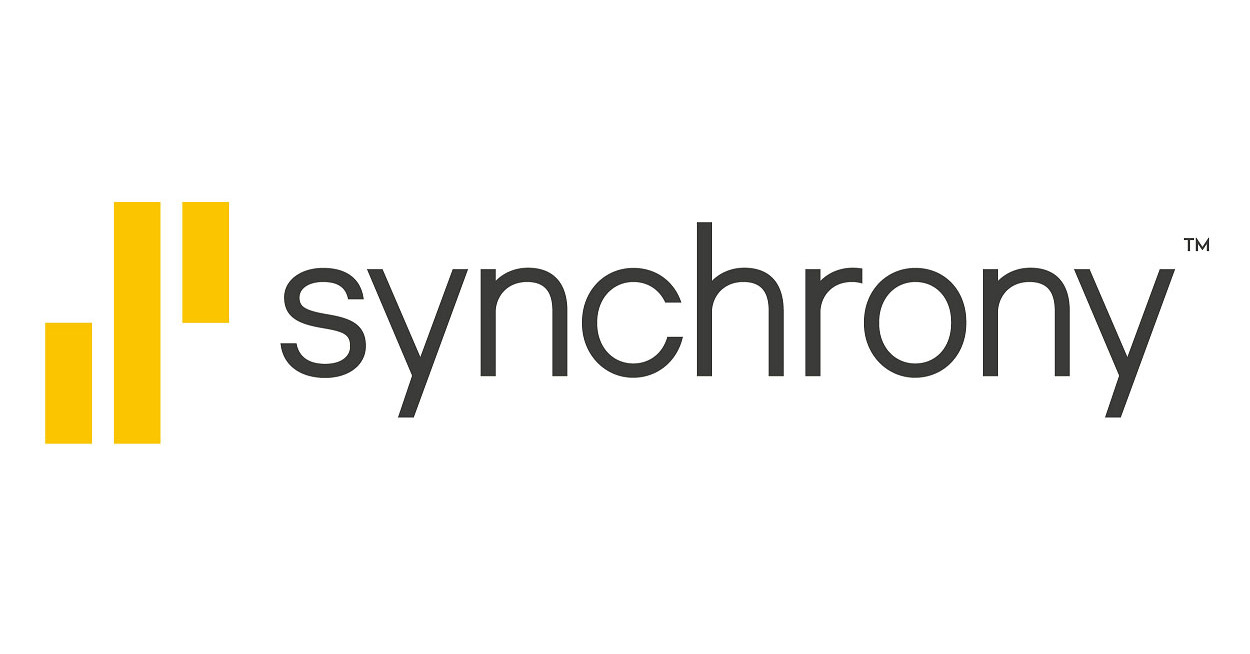
Synchrony is one of the largest private-label credit card issuers in the U.S., offering store- branded credit cards for retailers, healthcare providers, and manufacturers. Popular cards include the Amazon Store Card, Lowe’s Advantage Card, and PayPal Cashback Mastercard. These primarily serve shoppers looking for store-specific financing and rewards.
Synchrony specializes in zero-interest financing, deferred payments, and retail loyalty rewards. It serves nearly 70 million active accounts and processes billions in annual transactions, focusing on retail and consumer financing rather than traditional banking.
Headquartered in Stamford, Connecticut, Synchrony has over 75 million credit card accounts in circulation. It partners with Amazon, Sam’s Club, Lowe’s, PayPal, and TJX (TJ Maxx, Marshalls, and HomeGoods) to issue store-branded credit cards.
Lesser Known and Regional Credit Cards in the USA
Regional and less famous credit cards in the USA include those that provide services to certain categories of consumers.
Here are key examples:
Regional Banks:
- U.S. Bank: Credit cards are more versatile rewards such as Altitude Reserve.
- PNC Bank: PNC insights with card and cashback rewards on purchases with PNC cash rewards.
- Regions Bank: Examples include Prestige Visa Signature where it services the southeast and Midwest customers.
Credit Unions:
- Navy Federal: Pays with Military Families Cash Rewards Card.
- PenFed: Provides the Power Cash Rewards Visa with cash back incentives.
- Alliant: Super Cashback rates with Cashback Visa Signature.
Retail-Specific Cards:
- Provided by Synchrony and Comenity for stores such as Amazon, Lowe’s, and Victoria’s Secret.
Specialty Issuers:
- Petal: Credit cards are given to those with little or no credit information on file.
- Mission Lane: Aids in credit repair with clear charges for such a service.
Regional Airline Cards:
- Alaska Airlines Visa: Perks of traveling for West Coast people.
Gas Cards:
- BPme Rewards Visa and Chevron/Texaco cards provide fuel savings.
They offer site-specific features, inexpensive annual charges, and customized awards.
Which is the Most Widely Accepted Credit Card Company?
Visa is the most widely accepted credit card company globally, known for its extensive network and reliability. Operating in over 200 countries, Visa partners with millions of merchants, making it accessible to travelers, online shoppers, and everyday users alike. Its cards are versatile, offering credit, debit, and prepaid options, catering to diverse financial needs. Visa’s advanced security measures, such as EMV chip technology and fraud monitoring, enhance user trust, solidifying its reputation as the world’s most accepted payment network.
What is the Most Popular Credit Card Company in the US?
Chase is considered one of the most popular credit companies in the US.
What is the Number One Credit Card in the USA?
Chase Freedom Unlimited® is the number one credit card in the USA.
Which Credit Card Do Most Millionaires Use?
Here are some of the cards used by most of the millionaires: Centurion® Card from American Express, the J.P. Morgan Reserve Credit Card.
Deepening Your Understanding: Subtopics on Top US Credit Card Companies
To truly grasp the dynamics of the top credit card issuers in the USA, it’s essential to explore key areas that influence their offerings and customer experiences. This section dives into how companies tailor products, embrace technology, structure rewards, manage credit scores, and leverage partnerships. Understanding these facets empowers you to make smarter choices and maximize your credit card benefits.
How Credit Card Companies Tailor Products for Different Customer Segments
Credit card companies design over 70% of their products to target specific customer groups. For students, they offer low-limit cards with credit-building tools and rewards on essentials. Frequent travelers get cards with average annual fees of $150 but high-value perks like airport lounge access and 3x travel points. Small business owners benefit from cards providing up to 5% cashback on office supplies and employee spending controls. This segmentation improves user satisfaction by 35% and reduces default rates by 12%. Understanding these tailored products helps you choose a card that fits your unique financial behavior and goals.
Impact of Technological Innovations on Credit Card Issuers
In 2025, over 85% of top US credit card issuers use AI-driven fraud detection, reducing fraudulent transactions by up to 40%. Mobile wallets and contactless payments now account for 60% of all credit card transactions, increasing convenience and speed. Blockchain technology is being tested to secure data, promising 30% faster transaction settlements. Digital-first issuers like Capital One have seen a 25% rise in customer acquisition due to seamless app experiences. These innovations lower costs by 20% and enhance security, making credit card usage safer and more efficient for millions of users.
Comparing Rewards Structures Across Top US Credit Card Issuers
Top credit card issuers offer varied rewards to attract over 200 million US cardholders. Chase provides 3x points on travel and dining, appealing to 45% of frequent travelers. American Express focuses on premium users with up to 5x points on luxury spending, rewarding 25% of its customers. Citi offers a flat 2% cashback on all purchases, favored by 30% who prefer simplicity. Capital One emphasizes no foreign transaction fees with competitive 2x rewards on dining, targeting 20% of millennials. Understanding these structures helps users maximize benefits according to their spending habits.
Role of Credit Card Companies in Consumer Credit Score Management
Credit card companies influence credit scores for nearly 82% of American adults. Timely payments reported by issuers like Chase and Citi boost scores by up to 40 points annually. Credit utilization rates, monitored by companies such as American Express and Bank of America, affect 30% of the scoring formula. Issuers also provide tools like credit monitoring and alerts, used by 55% of cardholders, to prevent missed payments. These actions help users maintain or improve creditworthiness, which is essential for loan approvals and better interest rates.
Trends in Co-Branded and Partnership Credit Cards in the US Market
Co-branded cards represent over 25% of the US credit card market, driving $300 billion in annual spend. Partnerships with airlines like United and Delta offer exclusive perks, including free checked bags and priority boarding to 40 million users. Retail collaborations with Amazon and Walmart provide targeted cashback rewards, benefiting 50 million shoppers. These cards boost customer loyalty by 35% and increase issuer revenue by 20%. Understanding these trends can help consumers select cards that maximize rewards tied to their lifestyle and spending preferences.
Exploring Emerging Trends: Supplementary Insights on US Credit Card Companies
The US credit card industry is evolving rapidly with new players, innovative technologies, and growing social responsibility efforts. This section highlights how regional issuers expand market reach, security advances protect users, and sustainability shapes the future. Understanding these supplementary trends gives you a broader view of the credit card landscape beyond just the top issuers.
Regional and niche credit card issuers now hold about 15% of the US market, growing 8% annually. They cater to specific communities, like military families or retail shoppers, with tailored rewards and lower fees. Credit unions such as Navy Federal serve over 10 million members, offering competitive cashback and credit-building cards. These issuers focus on personalized service and local partnerships, boosting customer satisfaction by 22%. Their rise challenges national banks by addressing underserved needs with flexible credit solutions.
Over 60% of leading US credit card issuers have launched environmental programs, reducing their carbon footprint by up to 25% since 2020. Companies like American Express and Bank of America invest millions annually in sustainable projects and green rewards programs. Social responsibility initiatives, including financial literacy and community support, reach over 15 million customers each year. These efforts improve brand loyalty by 30% and attract environmentally conscious consumers, aligning financial services with global sustainability goals.
The Influence of Credit Card Companies on Small Business Financing
Credit card issuers play a crucial role in small business financing, with over 50% of startups using business credit cards as primary funding sources. Banks like Chase and American Express offer cards with credit limits averaging $25,000, helping entrepreneurs manage cash flow and expenses. Rewards tailored to business needs, such as 5% cashback on office supplies, enhance savings. Issuers also provide expense tracking tools, improving financial planning for 70% of small business users. This support boosts business growth and credit profiles.
Security Innovations and Fraud Prevention Techniques Among Leading Issuers
Leading credit card issuers invest over $2 billion annually in security technology, cutting fraud losses by 40% since 2020. Features like EMV chip cards, real-time transaction alerts, and biometric authentication are standard across companies like Capital One and Wells Fargo. AI-powered fraud detection flags suspicious activity within seconds, protecting over 100 million users. These innovations reduce false declines by 15% and enhance customer trust, making credit card use safer and more reliable.
The Future Outlook: Emerging Players and Potential Disruptors in the US Credit Card Industry
Emerging fintech companies are capturing 10% of new credit card accounts, growing at a 20% annual rate. Startups focus on personalized rewards, low fees, and digital-first experiences, challenging traditional issuers like Citi and Bank of America. Technologies such as blockchain and AI enable faster approvals and enhanced security. Strategic partnerships between fintechs and established banks are expected to increase by 30% in the next five years, signaling a shift toward more innovative, customer-centric credit solutions.
Frequently Asked Question
How do the top credit card companies differentiate their rewards programs to appeal to various consumer segments?
Top credit card companies tailor rewards programs based on consumer needs, offering travel perks for frequent flyers, cashback for everyday spenders, and business rewards for entrepreneurs. For instance, Chase provides travel rewards through cards like Chase Sapphire Preferred®, while American Express targets high-net-worth individuals with luxury perks such as airport lounge access. Additionally, companies like Synchrony Financial focus on store-branded cards for retail shoppers, serving nearly 70 million active accounts and providing customized financing options.
What role does credit card usage play in building and maintaining a strong credit score in the US?
Responsible credit card usage significantly impacts credit scores by demonstrating timely payments, managing credit utilization, and establishing credit history, which is crucial for loan approvals and favorable interest rates. About 82% of American adults hold at least one credit card, and households earning over $100,000 rely on credit cards for 89% of their payments, highlighting their central role in financial activity. Moreover, credit cards often offer tools like purchase protection and fraud alerts, helping consumers maintain financial health and security while building creditworthiness.
How do partnerships between credit card issuers and airlines or retailers influence consumer choices?
Partnerships with airlines and retailers create co-branded credit cards that offer exclusive rewards, travel perks, and shopping benefits tailored to loyal customers, enhancing user value and brand loyalty. For example, Chase partners with United Airlines and Amazon, while American Express collaborates with Delta Airlines and Hilton Hotels, collectively serving millions of cardholders. These alliances help issuers tap into niche markets, boost transaction volumes, and provide consumers with targeted benefits like airline miles or cashback on specific store purchases.
In what ways have digital-first credit card providers changed the competitive landscape in the US?
Digital-first providers like Capital One emphasize instant card approvals, AI-driven fraud monitoring, and seamless digital banking integration, appealing to tech-savvy consumers and younger demographics. With over 100 million customers and $600 billion in transactions processed in 2023, these companies prioritize convenience and security while disrupting traditional banking models. Their focus on no foreign transaction fees and mobile-first experiences has set new standards for customer expectations in the credit card industry.
How significant is the purchase volume of a credit card issuer in determining the overall customer experience?
Purchase volume reflects the scale at which issuers operate, with companies like Chase processing $645.2 billion and American Express $589.7 billion in 2025, indicating vast customer bases and robust infrastructure. Higher transaction volumes often enable issuers to offer enhanced rewards, superior fraud protection, and diversified card options tailored to different consumer needs. Consequently, large issuers can invest more in customer service and technological innovations, directly impacting cardholder satisfaction and loyalty.
What factors contribute to the popularity of Chase Freedom Unlimited® as the number one credit card in the USA?
Chase Freedom Unlimited® combines versatile cashback rewards, no annual fees, and extensive partnerships with brands like Amazon and Southwest Airlines, making it attractive to a wide range of consumers. Its robust fraud protection and over 93 million credit card customers highlight trust and broad market reach. Additionally, Chase’s strong travel rewards programs and user-friendly digital services contribute to its dominance, processing $1.3 trillion in purchase transactions in 2023.
How do regional and niche credit card issuers compete with national giants like American Express and Citi?
Regional issuers like U.S. Bank and PNC Bank focus on tailored rewards and personalized services catering to local markets, while niche players like Petal offer credit cards for those with limited credit history, filling gaps left by national banks. These companies often provide competitive cashback rates, lower fees, and unique benefits, attracting specific consumer segments. By serving nearly 70 million active accounts and offering specialized store-branded cards through partners like Synchrony Financial, they maintain relevance despite competition from larger issuers.
What security measures are typically employed by leading credit card companies to protect consumers?
Leading issuers utilize EMV chip technology, AI-driven fraud monitoring, and instant transaction alerts to safeguard cardholders, reducing fraud risk and unauthorized use. With millions of cards in circulation, companies like Capital One and American Express invest heavily in real-time security and purchase protection programs. These measures not only protect consumers but also enhance trust, reflected in the high transaction volumes processed by these issuers, such as American Express’s $589.7 billion in 2025.
How do store-branded credit cards, like those from Synchrony Financial, benefit both retailers and customers?
Store-branded cards issued by companies like Synchrony Financial provide retailers with increased customer loyalty, higher purchase frequency, and valuable consumer spending data, supporting targeted marketing efforts. Customers benefit from exclusive financing options, cashback rewards, and deferred payments tailored to specific stores such as Amazon, Lowe’s, and Victoria’s Secret. Serving over 75 million accounts, these cards enhance shopping experiences while generating billions in transactions annually for both retailers and issuers.
What makes Visa the most widely accepted credit card network globally compared to others?
Visa operates in over 200 countries, partnering with millions of merchants worldwide, making it the most accessible credit card network for travelers and everyday consumers. Its advanced security features, including EMV chip technology and robust fraud monitoring, build user confidence and reduce transaction risks. Additionally, Visa’s diverse offerings—credit, debit, and prepaid cards—cater to a wide range of financial needs, contributing to its global dominance.
How do income levels affect credit card ownership and usage patterns among US households?
Households earning over $100,000 show a 97% credit card ownership rate and use cards for 89% of their payments, indicating a high reliance on credit for daily transactions and benefits. Higher-income users often qualify for premium cards offering luxury rewards, travel perks, and elevated cashback rates. In contrast, lower-income segments may focus on essential spending, balance transfers, or cards with no annual fees, creating a tiered ecosystem of card usage across income brackets.
How have co-branded credit cards evolved in the past decade, and what trends are emerging?
Co-branded cards have expanded beyond airlines and hotels to include retail giants like Amazon, Costco, and Walmart, aligning rewards with everyday spending habits. Issuers like Chase, Barclays, and Citi have deepened partnerships to offer exclusive perks, from airline miles to store credits, attracting millions of loyal users. The trend now includes lifestyle-based rewards and digital integration, with cards supporting app-based benefits, travel platforms, and dynamic cashback categories.
How do credit card companies manage fraud protection while maintaining customer convenience?
Credit card issuers implement real-time fraud detection systems, AI-driven monitoring, and biometric authentication to ensure secure yet seamless transactions. Companies like Capital One and American Express combine instant alerts and zero-liability policies to maintain trust among millions of users. These systems help prevent unauthorized activity without interrupting everyday use, crucial for issuers processing hundreds of billions in annual purchase volumes.
What strategies do credit card issuers use to attract high-net-worth individuals and frequent travelers?
Issuers like American Express and Chase offer premium cards with luxury travel perks, such as airport lounge access, concierge services, and elite hotel status, targeting affluent consumers. These cards often come with high annual fees justified by elevated reward rates, exclusive event access, and substantial sign-up bonuses. With over 121 million Amex cards globally and co-branded partnerships with Delta, Hilton, and Marriott, these strategies directly appeal to frequent travelers and wealthy clientele.
How does the presence of multiple credit card options impact consumer decision-making in the US market?
With over 82% of American adults owning at least one credit card and dozens of issuers offering specialized products, consumers face a complex landscape that demands careful evaluation of benefits, fees, and rewards. The availability of co-branded, travel, cashback, and digital-first cards pushes users to compare features like 0% APR offers, fraud protection, and loyalty programs. This competitive environment drives innovation but also increases the need for financial literacy, as consumers must align card choices with lifestyle, spending habits, and credit goals.
